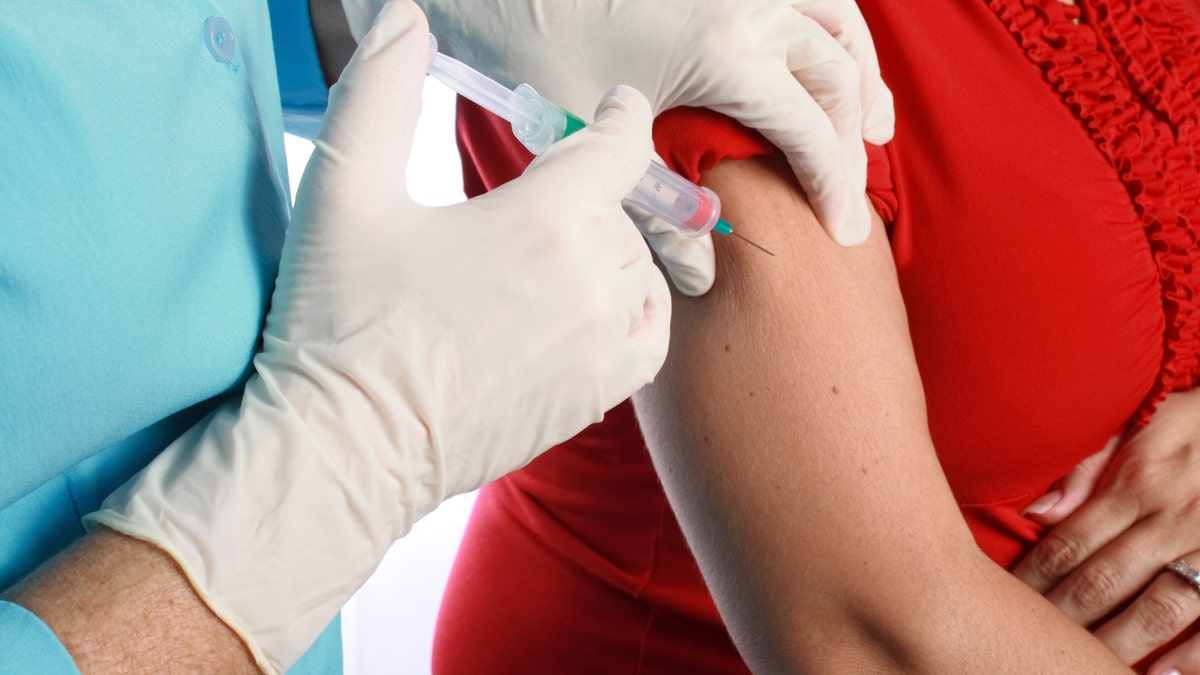
Medical shot of pregnant woman receiving innoculation.See more H1N1 photos here: (iStock)
Infants born to mothers who are vaccinated against the highly contagious and potentially fatal whooping cough are much less likely to get it than others, researchers said, in a large study published Monday.
Whooping cough, which is caused by Bordetella pertussis bacteria, is easily spread when an infected individual coughs or sneezes. About half of infants who contract the illness require hospitalization for complications like pneumonia or brain disorder, Reuters reported.
HPV VACCINATION DURING PREGNANCY SHOW NO ILL EFFECTS
In this study, which was published in the journal Pediatrics, researchers analyzed data of approximately 149,000 infants born in California from 2010 to 2015. They found that babies whose mothers got the Tdap booster vaccine for tetanus, diphtheria and pertussis were 91 percent less likely to get whooping cough during the first two months of life, and had a 69 percent lower risk of contracting the illness in their first year of life.
“It’s very important for pregnant women to get vaccinated,” lead author Dr. Nicola Klein of the Kaiser Permanente Vaccine Center in Oakland, California, told Reuters. “It’s an extremely effective vaccine to protect babies before they are able to get vaccinated on their own.”
ADULTS URGED TO GET VACCINATED
Health officials in many countries recommend vaccination during pregnancy, as well as a series of three shots for infants starting somewhere between 6 weeks and three months of age, Reuters reported. Some countries recommend that women get vaccinated during each pregnancy because effectiveness of the shot wanes over time. In the U.S., the Centers for Disease Control and Prevention (CDC), recommends all pregnant women get the Tdap shot regardless of their vaccination history.
All babies analyzed in the study were born at Kaiser Permanente, which encourages pregnant women to seek the Tdap vaccine. The authors noted that the study wasn’t designed to prove that vaccinating pregnant mothers protects babies from whooping cough, or to determine the optimal point in pregnancy to vaccinate mothers.
Reuters contributed to this report.








































